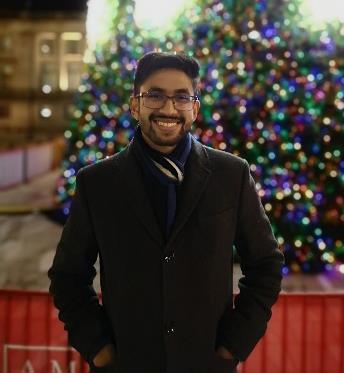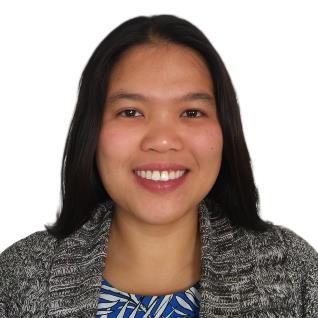Meet the Postdoctoral Leadership Council Series
featuring Shamsuddin Bhuiyan and Lien Nguyen (Advocacy Committee Co-Chairs)
by Stecia-Marie P Fletcher, PhD
SETTING THE CONTEXT
During the course of 2021 and 2022, a variety of contributing factors, including supply-chain shortages and widespread sanctions on Russian exports, have led to a gripping inflation crisis here in Boston, and around the globe. Postdoctoral Research Fellows in the Longwood Medical Area (highly trained and knowledgeable professionals, already markedly underpaid given their qualifications) felt this burden as they tried to maintain a comfortable lifestyle in one of the most expensive cities in North America. (If paid in keeping with the National Institutes of Health (NIH) guidelines, an entry-level post-doc makes just $54,840 a year.) So, when Harvard Medical School (HMS) announced a $60,000 minimum salary for postdoctoral fellows, beginning on July 1st, 2022, there was great excitement.
However, there was a caveat. While this change applied to all HMS quad-based postdocs, it had no direct bearing on the incomes of postdocs at HMS-affiliated hospitals, such as Brigham and Women’s Hospital (BWH, the Brigham) and Massachusetts General Hospital (MGH). As word spread that other institutions, like Boston Children’s Hospital and Dana-Farber Cancer Institute, would match the HMS minimum, postdocs at the Brigham began to call for a response from the BWH administration. Simultaneously, many turned their attention to what the BWH Postdoctoral Leadership Council (PLC), and particularly its Advocacy Committee, was doing to make postdocs’ voices heard.
After all, are BWH postdocs not as qualified as HMS quad-based postdocs? Do they not produce the same value? What is a postdoc worth?
A NEW ERA FOR THE ADVOCACY COMMITTEE
If one wanted information on the PLC Advocacy Committee in September 2021, they would have been hard-pressed to find it. A completely voluntary committee, it seemed to be one of the casualties of the 2020 COVID-19 shut-downs. However, just one year later, it is a thriving and enthusiastic team. That is due, in no small part, to the commendable leadership of its current Co-Chairs, Shamsuddin (Shams) Bhuiyan and Lien Nguyen.
Originally from Vancouver, British Colombia, Shams is a 2nd year postdoc in the Renthal Lab in the BWH Department of Neurology, where he studies the genomics and epigenomics of pain. Regarding his pivotal role in revitalizing the committee, he recalls, “Having been involved in leadership activities throughout my undergraduate and grad-school, I knew that I wanted to take on a leadership position here.” Upon reaching out to the PLC, he found out that the Advocacy Committee was dormant. He was passionate about issues that postdocs faced, like fair compensation, so he teamed up with the then PLC Vice-President, Robert Nshimiyimana, to build a new and improved committee. After starting with just two persons, he now says, “The thing that I am most proud of is that we have generated a very good committee. We are all passionate about advocacy, and our meetings are well-organized and full of great ideas.”
Like Shams, Lien is a postdoc in the BWH Neurology Department. She works with Dr. Anna Krichevsky, focusing on non-coding RNAs as the causes and possible therapeutic targets for brain diseases, including Alzheimer’s Disease and related dementias. She is originally from Vietnam but has studied in the United States since her undergraduate days. After joining the Brigham in July 2020, she immediately joined the PLC Communications Committee because she felt a strong sense of duty to bridge the gap in communication between scientists and the society-at-large. Lien is motivated by altruism, stating, “I am not the most outspoken person. I am not the most political person, but I do feel the responsibility to help other people as I can, and to use my knowledge and abilities to speak up for others.” In May 2022, she became the 4th member of the burgeoning Advocacy Committee and was instantly promoted to Co-Chair.
“I AM NOT THE MOST OUTSPOKEN PERSON. I AM NOT THE MOST POLITICAL PERSON, BUT I DO FEEL THE RESPONSIBILITY TO HELP OTHER PEOPLE AS I CAN, AND TO USE MY KNOWLEDGE AND ABILITIES TO SPEAK UP FOR OTHERS.”
LIEN NGUYEN, PHD
THE MISSION
Shams and Lien share a common vision for the committee. The mission of the Advocacy Committee is to promote better working and living experiences for postdocs at BWH. They have 2 main initiatives for the upcoming year: (1) to continue ongoing discussions with the hospital leadership about matching the salaries offered to postdocs at HMS and other institutions and (2) to collect data on what issues and challenges are most important to BWH postdocs through the administration of an ‘Annual Postdoc Survey’. The committee has already made significant progress on each front.
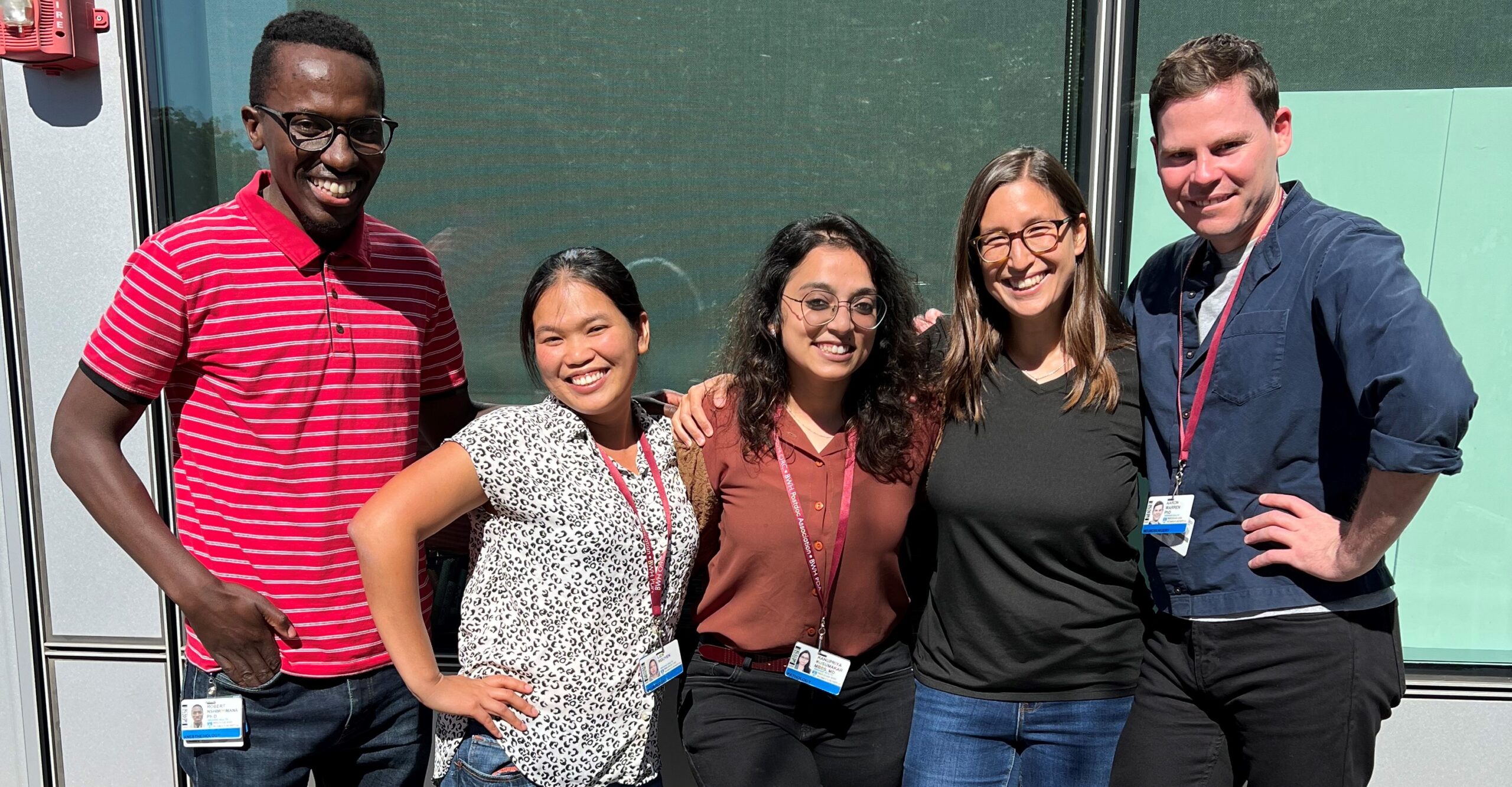
Although BWH leadership has indicated that it is currently unable to raise postdoc salaries across the board, Lien notes that there is one small improvement of which postdocs should be aware. “Previously, all postdocs were paid at exactly the NIH scale. If their advisors wanted to pay them more, they could not, in the name of equity. Now, if an advisor has the resources to pay a postdoc more, they can do so,” she says. This will come into effect in October 2022 and is especially pertinent to postdocs who have won fellowships that provide them higher salaries than the NIH scale. While she concurs that this is not sufficient, it is a step in the right direction.
The members of the committee have been working tirelessly and passionately to compile the inaugural ‘Annual Postdoc Survey’ with the hope of assessing the needs and challenges facing postdocs at the Brigham. In Shams’ evaluation, “We are all assuming that the biggest issue postdocs are facing is the salaries, but we do not have any data to support that. We are all scientists, and we can hypothesize, but we cannot make claims without data. We are hoping that everyone encourages their postdoc peers to complete the survey to tell us what the real issues are.” To this end, the committee has developed a survey, and sent it to the BWH Leadership for approval. Shams believes that they are close to getting the green light and hopes to launch the survey during National Postdoc Appreciation Week (September 19th – 23rd 2022).
Beyond these immediate goals, Shams and Lien see the Advocacy Committee as being fundamental to postdoc life at the Brigham going forward – even beyond their tenure as Co-Chairs. For Lien, much of the future role of the committee will be determined through communication and collaboration with other bodies: “We are not an island. We want to collaborate with other PLC Committees – the Career Development, Communications and Networking Committees – to address the challenges facing the postdoc community. Also, in the bigger picture, we would like to collaborate with other Postdoctoral Associations in the Boston area. We have already contacted the association at MGH, our sister institution, HMS, and a few other places. We want to improve the postdoc experience at the Brigham, but we also want to raise the standard in Boston and elsewhere.” Shams is confident that the results of their inaugural survey will forge the path forward for the committee. However, if he had to hypothesize, he muses, “I would guess a lot of our role would come down to diversity. I haven’t seen the demographics yet. I wonder how we are doing with diversity and where we are lacking? What are the underrepresented populations along the lines of things like race, sex, sexual orientation and gender?” Both agree that the goals of the committee are ambitious, but they are off to an excellent start.
“THERE IS AN IMAGE OF A SCIENTIST, THAT THEY THAT THEY ARE AT IT ALONE. I DON’T THINK THAT YOU SHOULD THINK THAT YOU ARE. THERE ARE SO MANY OTHER POSTDOCS GOING THOUGH VERY SIMILAR THINGS.”
SHAMSUDDIN BHUIYAN, PHD
YOU ARE NOT ALONE
For more information about the BWH PLC Advocacy Committee, or to get involved with their work, post-docs should contact Shams and Lien via email. Alternatively, they can contact the BWH PLC directly. Both Co-Chairs note that the Advocacy Committee is not qualified to meditate sensitive issues, but they can still offer support and point postdocs towards resources available through BWH and HMS.
In Shams’ words, “There is an image of a scientist, that they are at it alone. I don’t think that you should think that you are. There are so many other postdocs going through very similar things. My hope is that if postdocs feel alone and overwhelmed by any challenges, they drop us a line. I hope they come to our postdoc events and meet all of us. Work may still feel daunting and overwhelming, but at least you’d make some new friends along the way. That’s not a bad thing.”
GETTING TO KNOW SHAMS AND LIEN (Q&A)
(Responses have been edited for length and clarity)
If your family, colleagues and friends had just one word to describe you, what would it be?
Shams: Hungry. Hungry for food. Not hungry for knowledge or anything like that. I eat a lot of food. I cook a lot of food. I go out to eat a lot. Outside of my work, food is a very big part of my personality and my life. Can I add another word? Loud. Because I am loud, and I think sometimes I forget what my inside voice is. People usually hear me, and it is very hard for me to blend in with a crowd, probably because I am so loud.
Lien: Not one word, but I tend to smile a lot – that is what people notice. A lot of times vacantly, because as a neuroscientist, I have a lot of thoughts in my brain, and they occupy me. Sometimes it is because I was just thinking of some very happy memories from the past.
What is your most frequently used emoji?
Shams: I think it’s the thumbs up (👍), because oftentimes I’m faced with situations where I feel that all I can do is acknowledge that a message was received.
Lien: I have been using emojis a lot more often now. I have been trying to stay cool and I am finally getting into my teenage rebellious phase, in my thirties. I was a lot more serious in my younger years, especially in high school. The emoji I use the most often is the smiling face, with the sweat on the forehead. I like to use it to qualify my statements. For example, I would say, “I like to be that mad scientist cackling over a test tube…but only occasionally 😅.”
If there was a topic, outside your field, that you could have infinite knowledge about, what would it be?
Shams: Skincare. Part of that is because my wife is very into skincare, and I’ve realized that there is a lot of science and a lot of history to it. I see my wife watch a lot of videos about skincare. I wish I had that knowledge. I just don’t want to go through the trouble of acquiring that knowledge because it seems like it’s a lot of work.
Lien: I would be a farmer, like all my great-grand-parents were back in Vietnam. I like to eat, so I would be able to reap the rewards from my crops.
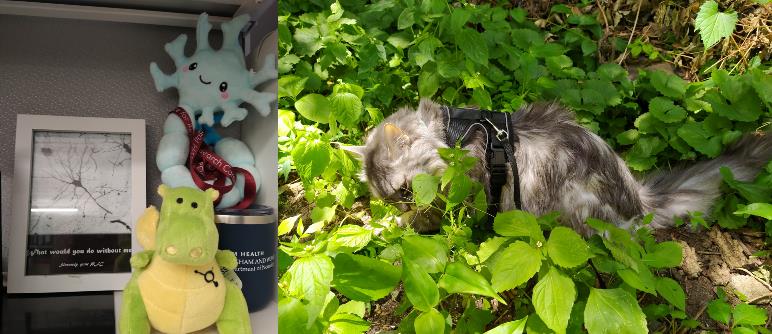
However, I would like to be in high-tech farming, so it is back to being a scientist. I’ve thought about working with genetically modified organisms, be-cause I think that we have a lot of people in the world now and we need to have high technology to produce all the nutritious food that we can. I can genetically engineer that carrot, grow that carrot, and eat that carrot. That is something I will think about trying in my spare time. I think the only thing that is preventing me from growing crops is that my cat just loves eating and murdering my plants. I guess I like having cats more than having a farm growing plants.
What are your major motivators in life?
Shams: I am very motivated by my wife. She is an incredibly smart person. She’s also very organized, and she is very emotionally intelligent. I think the challenge of trying to be like that is both inspiring and motivating. So, I would say her. But this is after food! The list would be food, my wife, then natural curiosity and science. Food first.
What is something that you are extremely passionate about?
Lien: When I saw my very first immunofluorescent images of neurons, I fell in love with neuroscience because neurons are so pretty. You look at HEK cells and what are they? Just triangular. Compare that with neurons where there is the cell body, there are the dendrites, the little spines, and the axons. If you see a bunch of neurons together, they are just the best! Of course, I have a lot of admiration for the father of neuroscience, Ramon y Cajal. I wish one day I could draw those neurons as well as he did.
CONTACT DETAILS
- Shamsuddin Bhuiyan: sbhuiyan1@bwh.harvard.edu
- Lien Nguyen: lnguyen53@bwh.harvard.edu
- BWH Postdoctoral Association & BWH Postdoctoral Leadership Council: bwhpda@partners.org
RESOURCES
- BWH Postdoctoral Association: https://pda.bwh.har-vard.edu/
- BWH Postdoc Newsletter: https://pda.bwh.har-vard.edu/postdoc-newsletter/
- Brigham Research Institute: http://www.bwhresearch.org/
- Research Oversight Committee: http://www.bwhre-search.org/about/leadership-staff/
- Office for Research Careers: https://orc.bwh.harvard.edu/
- Postdoc Policy (Updated May 2022): https://pda.bwh.har-vard.edu/resources/postdoc-policy/
- Office of Mediation, Coaching, Ombuds and Support Ser-vices: https://www.brighamandwomens.org/about-bwh/omcoss/mediation-and-coaching-services
ABOUT THE AUTHOR
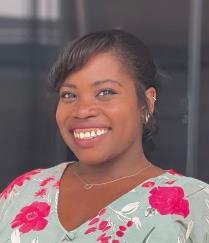
Stecia-Marie P Fletcher is a Postdoctoral Research Fellow in the Focused Ultrasound Laboratory in the Department of Radiology at Brigham and Women’s Hospital. Prior to starting her postdoctoral training in April 2021, she completed her PhD in Medical Biophysics at the University of Toronto (2021) and her undergraduate degree in Medical Physics from University College London (2016).
Stecia currently serves as the Co-Vice President and Interim Chair of the Communications Committee of the Brigham and Women’s Hospital Postdoctoral Leadership Council. For more information on the Communications Committee or to contribute articles to our biannual newsletter, please contact her at sfletcher4@bwh.harvard.edu.


